College Faculty Members Are Teaching a Lesson in Solidarity
As students coast to coast continue to call on their universities to divest from Israel, professors are standing up for their right to protest.
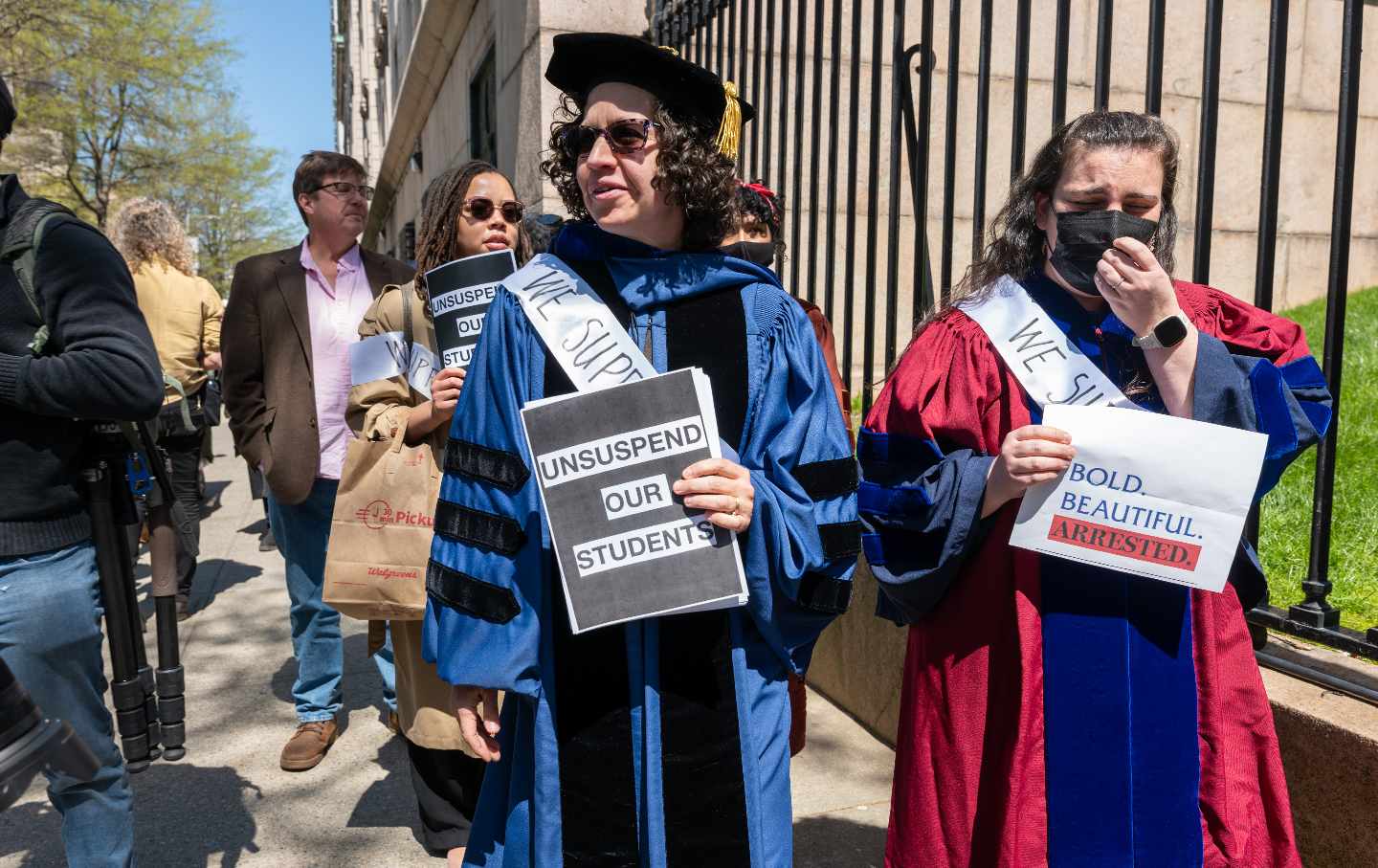
Barnard professors walk out of class in support of students suspended for protesting for Palestine at Columbia University.
(Spencer Platt / Getty)
Professor Susan Bernofsky had just finished teaching a writing class and was starting her lunch break when she saw the New York Police Department take more than 100 Columbia University students away in zip ties. “To stand there and watch policemen grabbing students and picking them up and dragging them out of campus was traumatic.”
Students had formed a Gaza Solidarity Encampment two days earlier, setting up tents on the school’s East Butler lawn and calling on the school to divest from Israel, when President Minouche Shafik asked the NYPD to arrest them for trespassing on April 18. “UNSUSPEND MY STUDENTS, COLUMBIA,” wrote Bernofsky on X, formerly Twitter, the next morning.
She wasn’t alone—especially among faculty. On Monday, April 22, over 200 Columbia and Barnard University staff members staged a walkout, gathering on the steps of Columbia’s historic Low Library. “We did not consent to police being brought onto campus to arrest students, and the administration did it anyway,” said Bernofsky. “Faculty members at Columbia have a wide range of political opinions about a lot of things, but we’re pretty united that we do not want our students mass arrested.”
More than two weeks later, another encampment on campus—which stood for two weeks—was swept away after more than 300 arrests by the NYPD. So far, more than 100 American colleges and universities have formed similar protests. Every campus is unique, but excessive force has been a common factor. Videos of cops with riot gear, rubber bullets, tear gas, and, in some cases, sniper rifles, have engulfed social media as students call on their academic institutions to cease funding Israel’s continued assault on Gaza.
But professors coast to coast are standing up for students’ right to protest, working to drop charges, evictions, and suspensions, and often echoing their demands directly. “As faculty, our labor helps to fund our university endowments, which profit from Israel’s illegal occupation of Palestinian land and the genocide which Israel is committing in Gaza,” said Lara Jirmanus, a clinical instructor at Harvard Medical School.
“Students of this historical moment understand that our liberation struggles are deeply interconnected and that our institutions cannot be relied upon to set us free,” said Jennifer Brody, an assistant professor at HMS. “The students help channel and reflect the bravery of the Palestinian people and serve as a call for us all to be braver.”
At Ohio State University (OSU), both campus police and state troopers arrested dozens of students in late April. “The university is betraying its students,” said Dr. Pranav Jani, an associate professor of English and a faculty adviser for Students for Justice in Palestine. “Administration used the rhetoric of safety to attack, arrest, and jail nonviolent protesters. They had snipers on the rooftops, in the name of safety!” said Jani. “Not a single administrator came to the students to de-escalate: they just sent their police.”
Ashley Pérez, an assistant professor of Comparative Studies at OSU, said that student protesters followed every instruction of police in the yard so that their action could continue, repeatedly requesting guidance on how they could carry out their intended free speech. “I asked if students could be in small study groups with a faculty member in each group. All of these efforts to access any avenue for expression were dismissed, and the police threatened them—and all present—with arrest if they did not disperse,” said Perez. “Even after protesters had dispersed, police arrested a person standing alone, far from the site of the original gathering, alleging that he did not follow the order to leave.”
“There have been very ridiculous efforts to manufacture false claims of violence and harassment,” said Tavia Nyong’o, an American Studies professor at Yale University and member of Faculty for Justice in Palestine. “The only violence that we witnessed was the police arresting our students.”
“Neither the President of Yale nor the dean of Yale College met with the students, or even communicated directly with them,” said Kishwar Rizvi, a professor of the history of art and architecture at Yale. “Instead, the leadership sent public safety administrators, and—eventually—the police, to curb their peaceful dissent and right to freedom of speech.”
As student arrests swell across US campuses, faculty arrests have increased in turn. On April 22, an Emory professor was thrown to the ground as Atlanta police forcibly arrested her and charged her with battery.
Sumaya Hamadmad, a research scientist at OSU, was arrested by OSU police and spent 12 hours in police custody for sitting on the campus lawn. Though she told an officer that she wasn’t affiliated with the protest and was just having lunch on the grass with another colleague, the officer left and returned “with almost 20 police officers,” said Hamadmad. “My friend was arguing with him, like, ‘Why did you choose her?’ I wear the hijab and I am Muslim. So she was arguing with him. ‘Why did you select her? Not me?’ She’s a white, non-Muslim friend. He said, ‘Do you want to be arrested?’ And that’s when he arrested her as well. So we were both arrested.”
Popular
“swipe left below to view more authors”Swipe →Hamadmad’s mugshot was taken without her hijab. “I requested a head covering so many times. I was trying to cover my T-shirt, and they ripped down my T-shirt. I was stripped naked in front of male officers. I was fasting and I was denied an iftar meal. I was denied a prayer rug so I had to use toilet paper to pray on. They denied me a phone call until 10 hours after my arrest, and my kids needed to be picked up from school.” But Hamadmad was more concerned for her Muslim students who would be subjected to similar Islamophobic actions after the mass arrests at OSU in the evening. “That was my only worry, how are they going to handle this? I am in my 40s and I have seen dictatorship tactics and even I was shocked and brutalized.”
Zach Samalin, an assistant professor of English at New York University (NYU), was arrested alongside more than 100 students and faculty on April 22, and called the crackdown an “appalling, disappointing, incoherent, and infuriating act of aggression.” Samalin said that university administration and security personnel had been incrementally threatening the encampment since the morning: barricading the students in the plaza; filming and surveilling demonstrators throughout the day; and eventually calling in the NYPD’s counter-terrorism unit, the Strategic Response Group, to come and arrest everyone on the plaza around 8:30 pm.
“We formed a line that was meant to protect the students who were demonstrating and praying behind us from the police who started saying that we were trespassing,” said Samalin. “I tried to argue with them saying I didn’t see how we could be trespassing since we worked there, and also we had been admitted onto the plaza,” he said. “It’s not in your job description, as a professor, that you’re going to have to protect your students from police that have been called by your employer.”
But the protests have also provided some professors with unique teaching opportunities. “Class is here today,” said Max Weiss, who held his class in the encampment. “I taught my class on Tuesday outside. Other colleagues of mine were teaching their classes in the protest, and one was holding office hours. It was a beautiful spring day,” said Nyong’o. “I’m starting a reading group with several students and faculty from Art and Sciences and the Law school,” said Jirmanus. “Students ask for faculty and staff to support them and their movement in various ways, such as just being there with them as they march and sing, but to also teach them and pass down our knowledge to them.”
“We must also be willing to take risks alongside our students. They should not and cannot feel alone,” said professor Treva B. Lindsey at OSU, who emphasized that Palestine should remain the primary focus. “As I watched the Harvard students rush the Harvard Yard to set up their tents as many faculty and students formed a circle, locking arms to protect them,” said Brody, “I kept thinking to myself, ‘I want to live in the world they are building.’”
More from The Nation
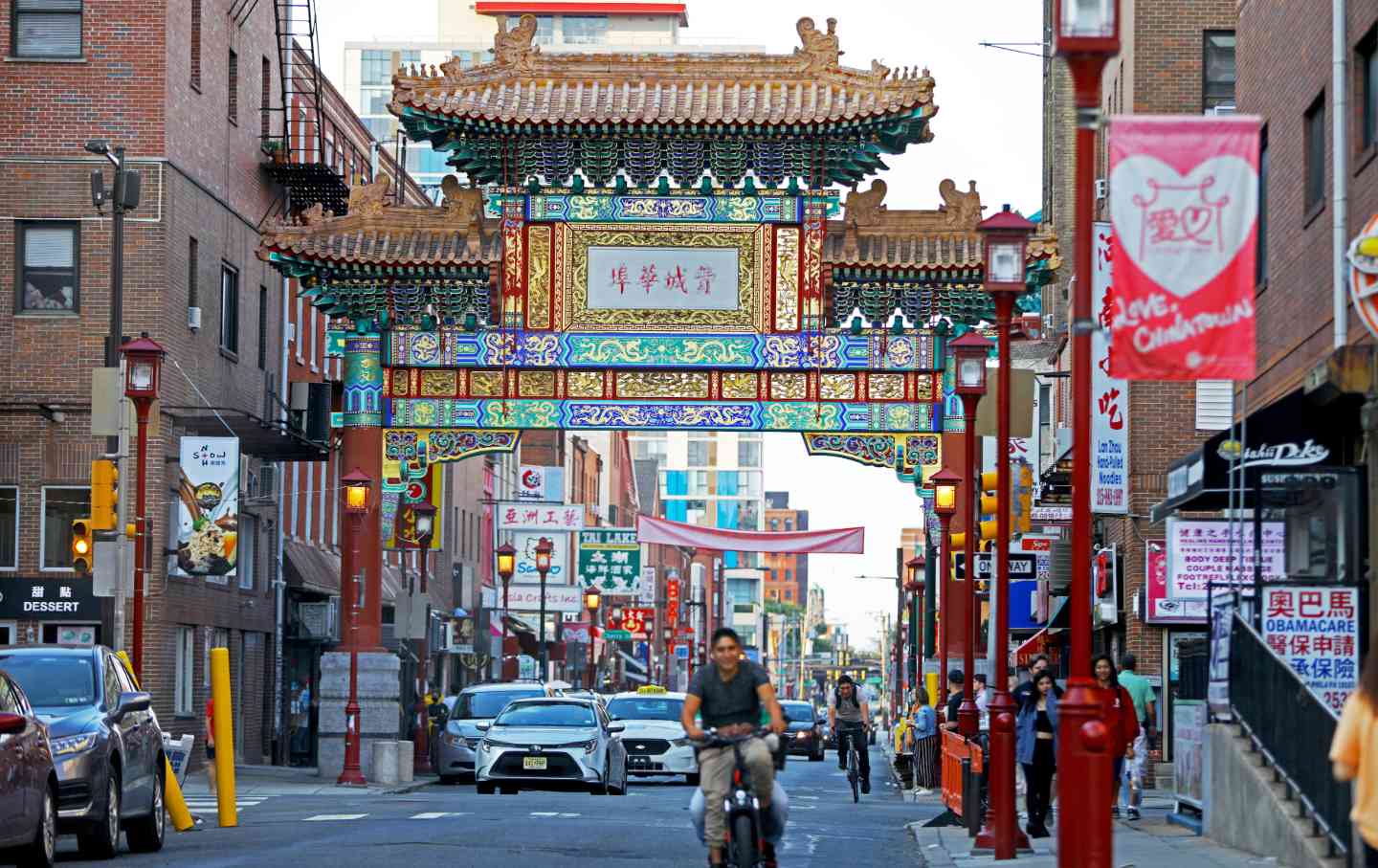
The “Save Chinatown” Coalition Goes on the Defensive in Philadelphia The “Save Chinatown” Coalition Goes on the Defensive in Philadelphia
The construction of a new basketball arena threatens to fill the neighborhood with more traffic and raise rents.

Human Rights for Everyone Human Rights for Everyone
December 10 is Human Rights Day, commemorating the anniversary of the Universal Declaration of Human Rights (UDHR), one of the world's most groundbreaking global pledges.
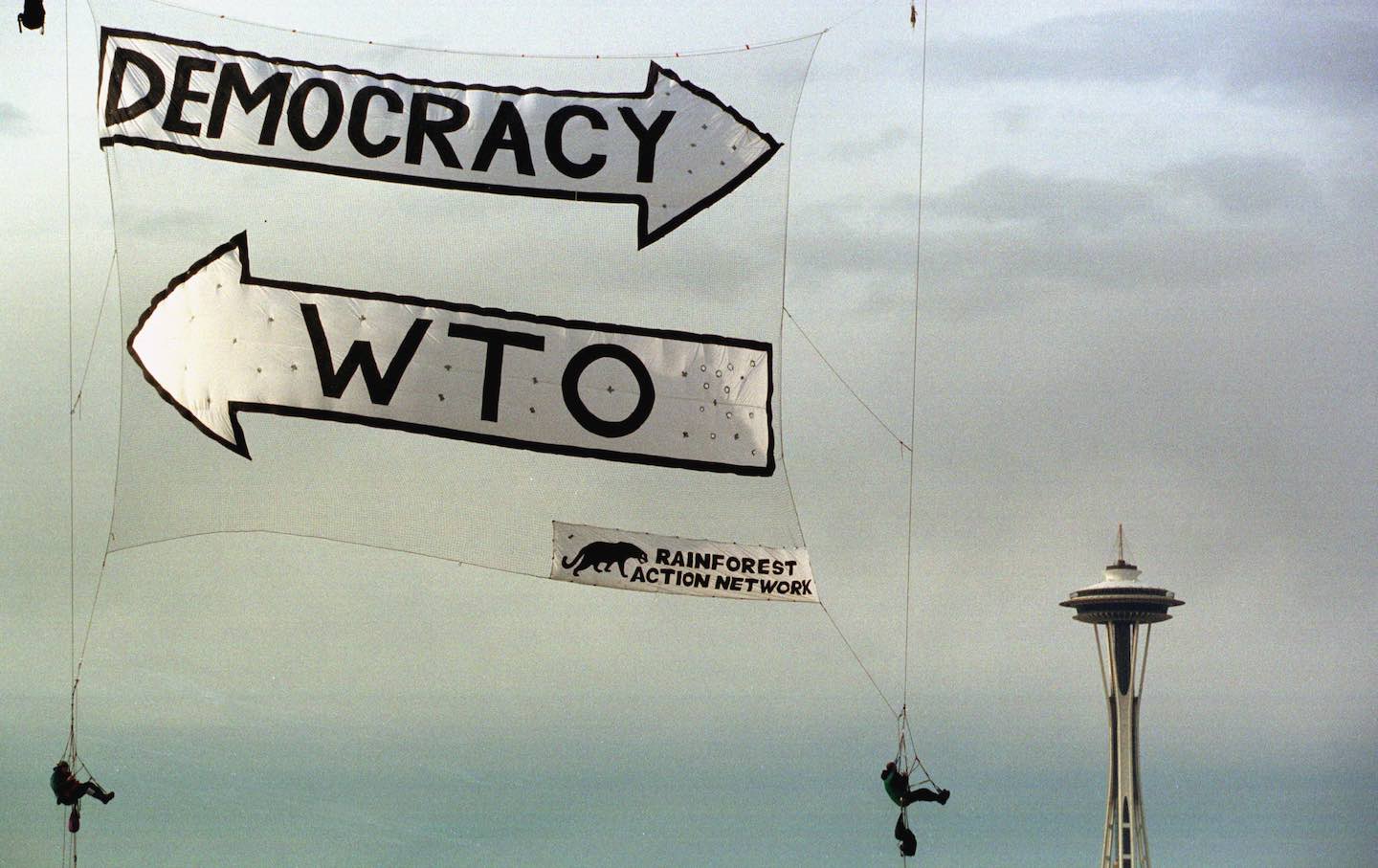
25 Years Ago, the Battle of Seattle Showed Us What Democracy Looks Like 25 Years Ago, the Battle of Seattle Showed Us What Democracy Looks Like
The protests against the WTO Conference in 1999 were short-lived. But their legacy has reverberated through American political life ever since.
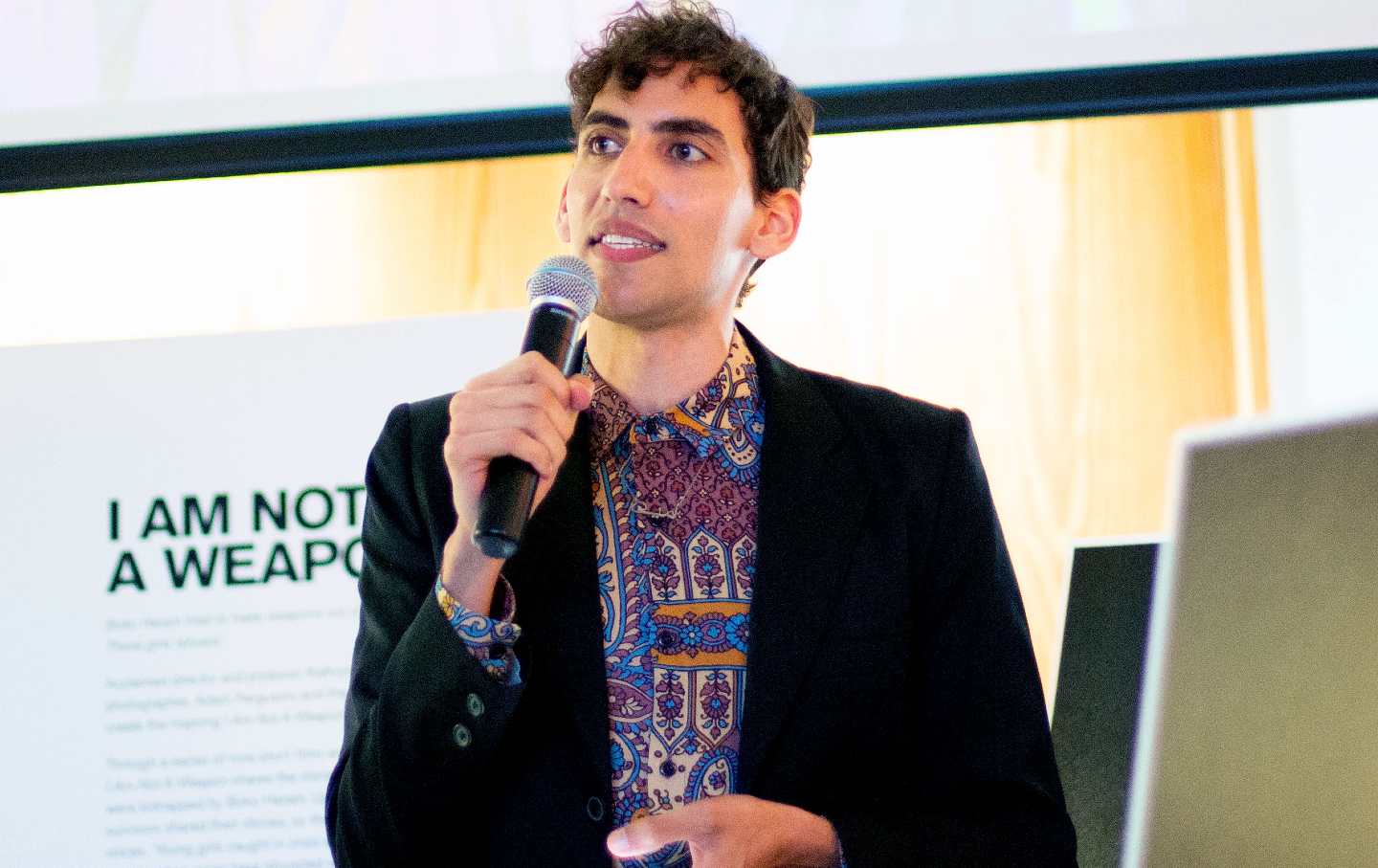
Hollywood’s Vocal Actors Union Goes Silent on a Gaza Ceasefire Hollywood’s Vocal Actors Union Goes Silent on a Gaza Ceasefire
Amin El Gamal, head of SAG-AFTRA's committee on Middle Eastern and North African members, has advocated for a statement supporting a ceasefire in Gaza—so far without success
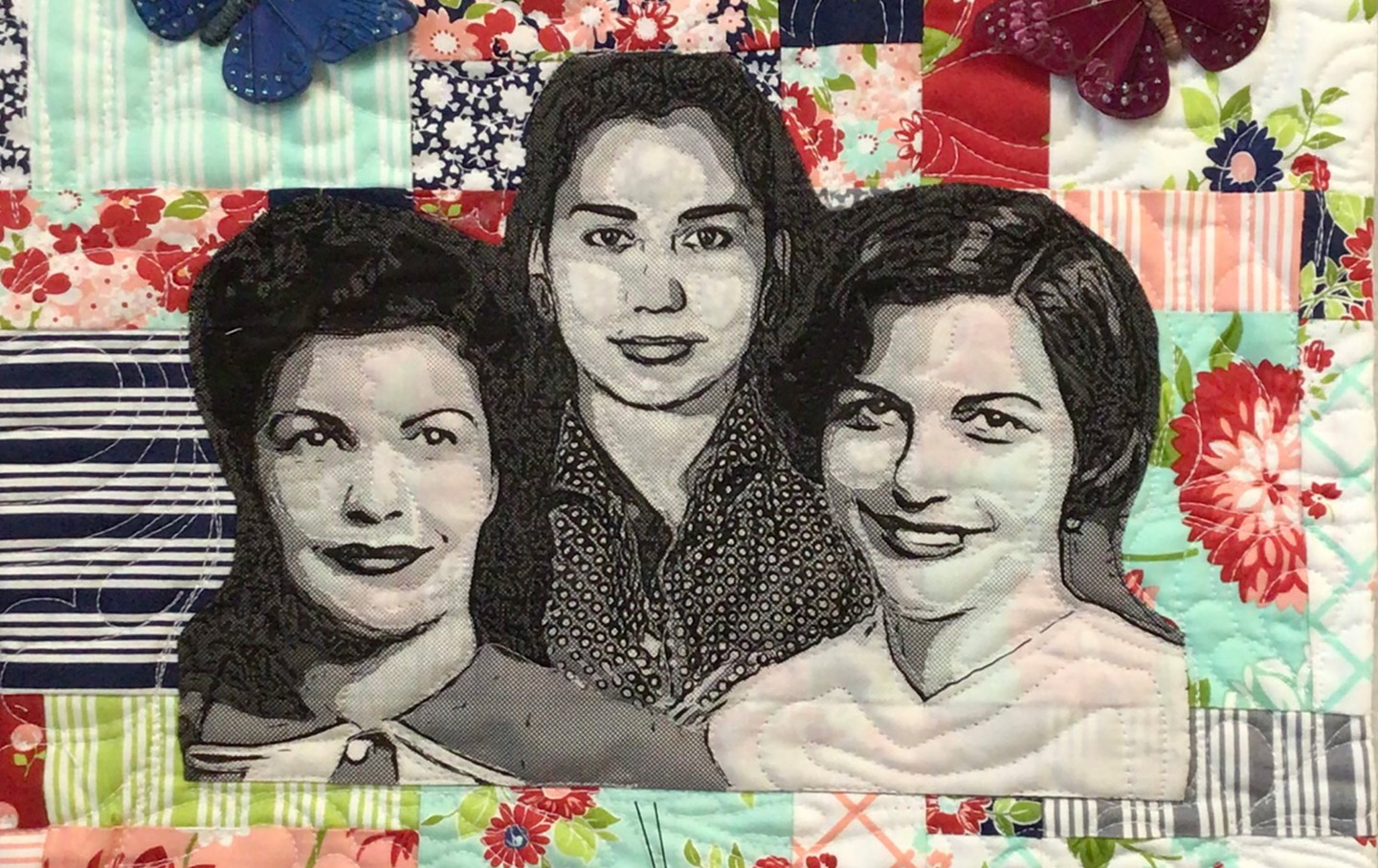
The Mirabal Sisters The Mirabal Sisters
Patria, Minerva, and María Teresa Mirabal were sisters from the Dominican Republic who opposed the dictatorship of Rafael Trujillo; they were assassinated on November 25, 1960, und...
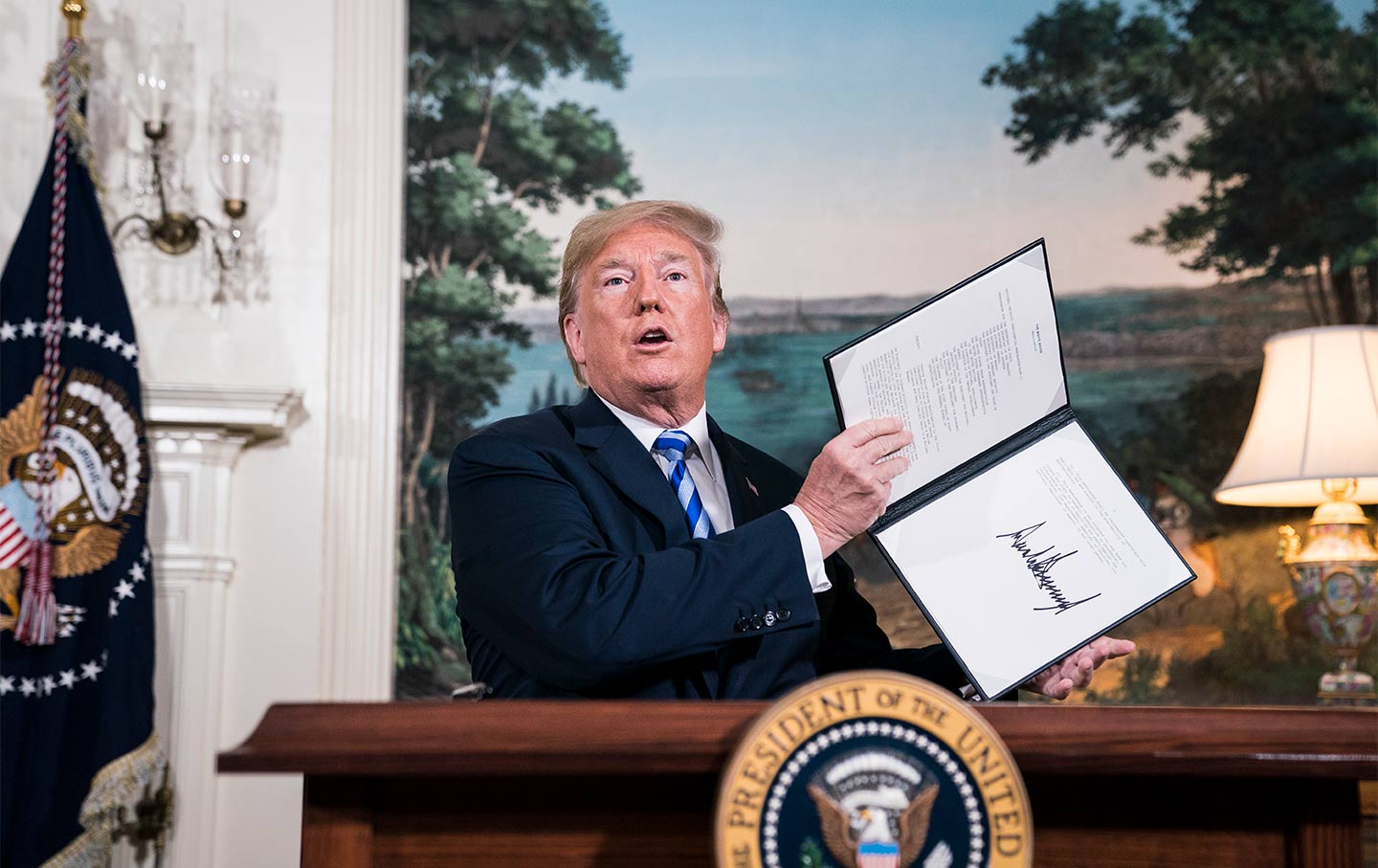
What Will a Peace Movement Look Like Under Trump’s Second Presidency? What Will a Peace Movement Look Like Under Trump’s Second Presidency?
An all-hands-on-deck approach to the coming world of Donald Trump and crew is distinctly in order.


